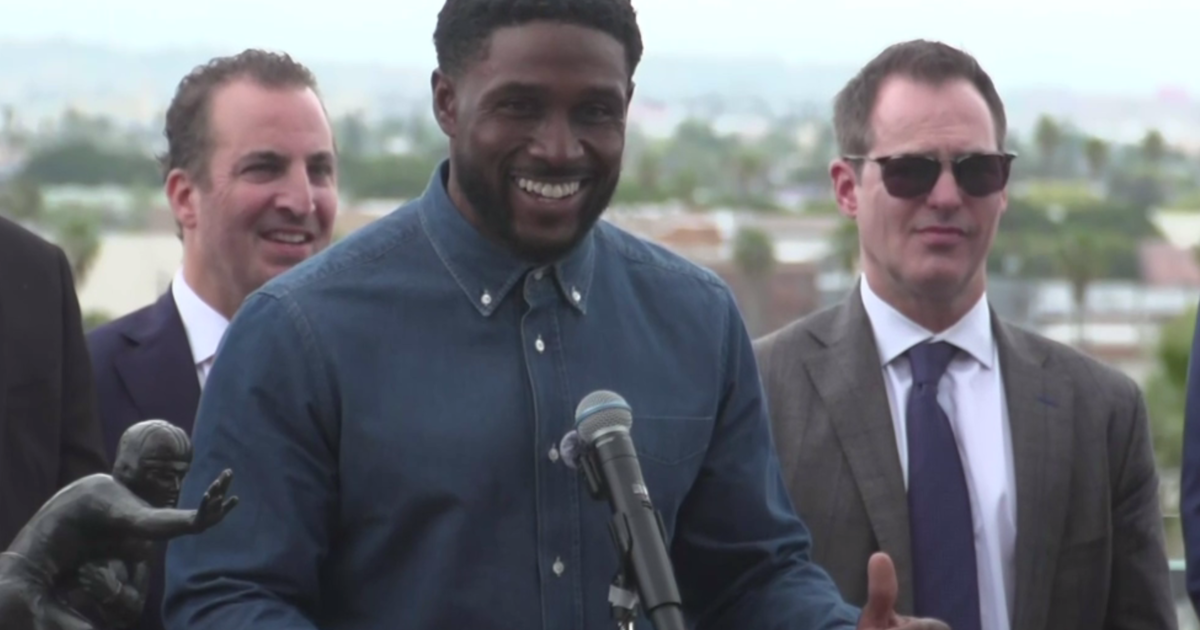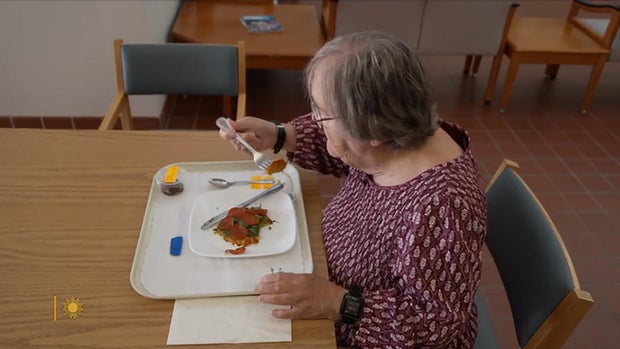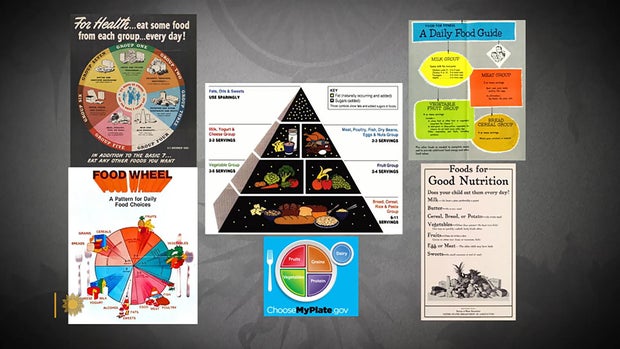CBS News
Reggie Bush calls for accountability after long battle to reclaim Heisman Trophy

Former University of Southern California running back Reggie Bush is demanding accountability in the wake of allegations that led to him forfeiting his Heisman Trophy in 2010. Bush’s trophy was returned to him on Thursday after a 14-year dispute with the NCAA.
He received the award for the most outstanding college football player in 2005 when he played for the University of Southern California Trojans. But in 2010, Bush forfeited the award following an NCAA investigation that found he accepted gifts and cash from a would-be agent.
Bush’s dispute with the NCAA intensified following a 2021 statement from the organization, which he claimed defamed him by describing his situation as a “pay-for-play type” arrangement.
“I was never paid to play. That never happened, ever. I was a broke college kid,” he said.
The return of the trophy coincides with a transformative era in college athletics, where players can now profit from their name, image, and likeness. Bush remains skeptical of how these changes serve all players.
“Everybody’s benefitting but the kids. The NIL works for the star player of the team. That’s it,” he said.
The NCAA declined to comment on this story.
Bush said the reinstatement by the Heisman Trust reflects the end of a long journey for him.
“I think when you’ve manifested this for so long, right, and you’ve been, I think, through the ups and the downs for so many years, I’ve cried over it, I have—you know—but I feel like at this point it was more about just taking it in, and just being happy, and just enjoying the moment,” said Bush.
“It was as heavy as I remembered,” Bush joked about lifting the trophy again.
The joy of the moment is overshadowed only by years of emotional struggle, including moments when Bush said he dealt with depression and thoughts of suicide. Bush credits his recovery to the support he received from the New Orleans Saints’ community when he joined the NFL team.
“When I think I’m at my weakest point, and when I’m dealing with depression, fighting thoughts of suicide, there’s an entire city there to embrace me, and to lift me up and to give me an opportunity to go out once again and to prove myself,” he said.
As Bush looks forward to his future, he said he is excited about returning to USC and participating in the tradition of leading the team onto the field this fall.
“It’s gonna be full circle, it’s gonna be crazy, amazing, exciting,” he said.
Bush’s No. 5 jersey number will also make its return to USC’s Coliseum.
“It means everything. That’s what I grinded for. The hard work and dedication that I put in on this football field, in that stadium, in the weight rooms, in the classrooms… everything that was asked of me, I did that,” he said. “Every time my name, my number was called, I gave them 110%.”
CBS News
A study to devise nutritional guidance just for you

It’s been said the best meals come from the heart, not from a recipe book. But at this USDA kitchen, there’s no pinch of this, dash of that, no dollops or smidgens of anything. Here, nutritionists in white coats painstakingly measure every single ingredient, down to the tenth of a gram.
Sheryn Stover is expected to eat every crumb of her pizza; any tiny morsels she does miss go back to the kitchen, where they’re scrutinized like evidence of some dietary crime.
Stover (or participant #8180, as she’s known) is one of some 10,000 volunteers enrolled in a $170 million nutrition study run by the National Institutes of Health. “At 78, not many people get to do studies that are going to affect a great amount of people, and I thought this was a great opportunity to do that,” she said.
CBS News
It’s called the Nutrition for Precision Health Study. “When I tell people about the study, the reaction usually is, ‘Oh, that’s so cool, can I do it?'” said coordinator Holly Nicastro.
She explained just what “precise” precisely means: “Precision nutrition means tailoring nutrition or dietary guidance to the individual.”
The government has long offered guidelines to help us eat better. In the 1940s we had the “Basic 7.” In the ’50s, the “Basic 4.” We’ve had the “Food Wheel,” the “Food Pyramid,” and currently, “My Plate.”
CBS News
They’re all well-intentioned, except they’re all based on averages – what works best for most people, most of the time. But according to Nicastro, there is no one best way to eat. “We know from virtually every nutrition study ever conducted, we have inner individual variability,” she said. “That means we have some people that are going to respond, and some people that aren’t. There’s no one-size-fits-all.”
The study’s participants, like Stover, are all being drawn from another NIH study program called All Of Us, a massive undertaking to create a database of at least a million people who are volunteering everything from their electronic health records to their DNA. It was from that All of Us research that Stover discovered she has the gene that makes some foods taste bitter, which could explain why she ate more of one kind of food than another.
Professor Sai Das, who oversees the study at Tufts University, says the goal of precision nutrition is to drill down even deeper into those individual differences. “We’re moving away from just saying everybody go do this, to being able to say, ‘Okay, if you have X, Y and Z characteristics, then you’re more likely to respond to a diet, and somebody else that has A, B and C characteristics will be responding to the diet differently,'” Das said.
It’s a big commitment for Stover, who is one of 150 people being paid to live at a handful of test sites around the country for six weeks – two weeks at a time. It’s so precise she can’t even go for a walk without a dietary chaperone. “Well, you could stop and buy candy … God forbid, you can’t do that!” she laughed.
While she’s here, everything from her resting metabolic rate, her body fat percentage, her bone mineral content, even the microbes in her gut (digested by a machine that essentially is a smart toilet paper reading device) are being analyzed for how hers may differ from someone else’s.
Nicastro said, “We really think that what’s going on in your poop is going to tell us a lot of information about your health and how you respond to food.”
CBS News
Stover says she doesn’t mind, except for the odd sounds the machine makes. While she is a live-in participant, thousands of others are participating from their homes, where electronic wearables track all kinds of health data, including special glasses that record everything they eat, activated when someone starts chewing. Artificial intelligence can then be used to determine not only which foods the person is eating, but how many calories are consumed.
This study is expected to be wrapped up by 2027, and because of it, we may indeed know not only to eat more fruits and vegetables, but what combination of foods is really best for us. The question that even Holly Nicastro can’t answer is, will we listen? “You can lead a horse to water; you can’t make them drink,” she said. “We can tailor the interventions all day. But one hypothesis I have is that if the guidance is tailored to the individual, it’s going to make that individual more likely to follow it, because this is for me, this was designed for me.”
For more info:
Story produced by Mark Hudspeth. Editor: Ed Givnish.
“Sunday Morning” 2024 “Food Issue” recipe index
Delicious menu suggestions from top chefs, cookbook authors, food writers, restaurateurs, and the editors of Food & Wine magazine.
CBS News
A new generation of shopping cart, with GPS and AI

Watch CBS News
Be the first to know
Get browser notifications for breaking news, live events, and exclusive reporting.
CBS News
“All hands on deck” for Idaho’s annual potato harvest

Watch CBS News
Be the first to know
Get browser notifications for breaking news, live events, and exclusive reporting.












